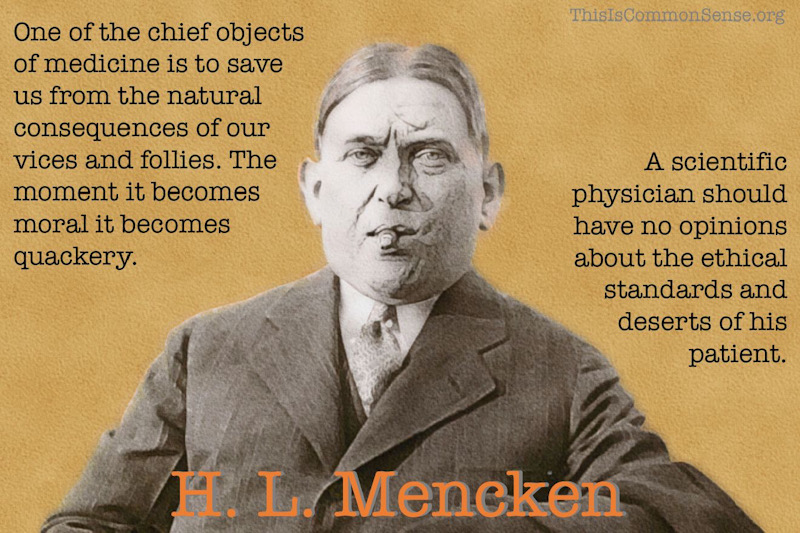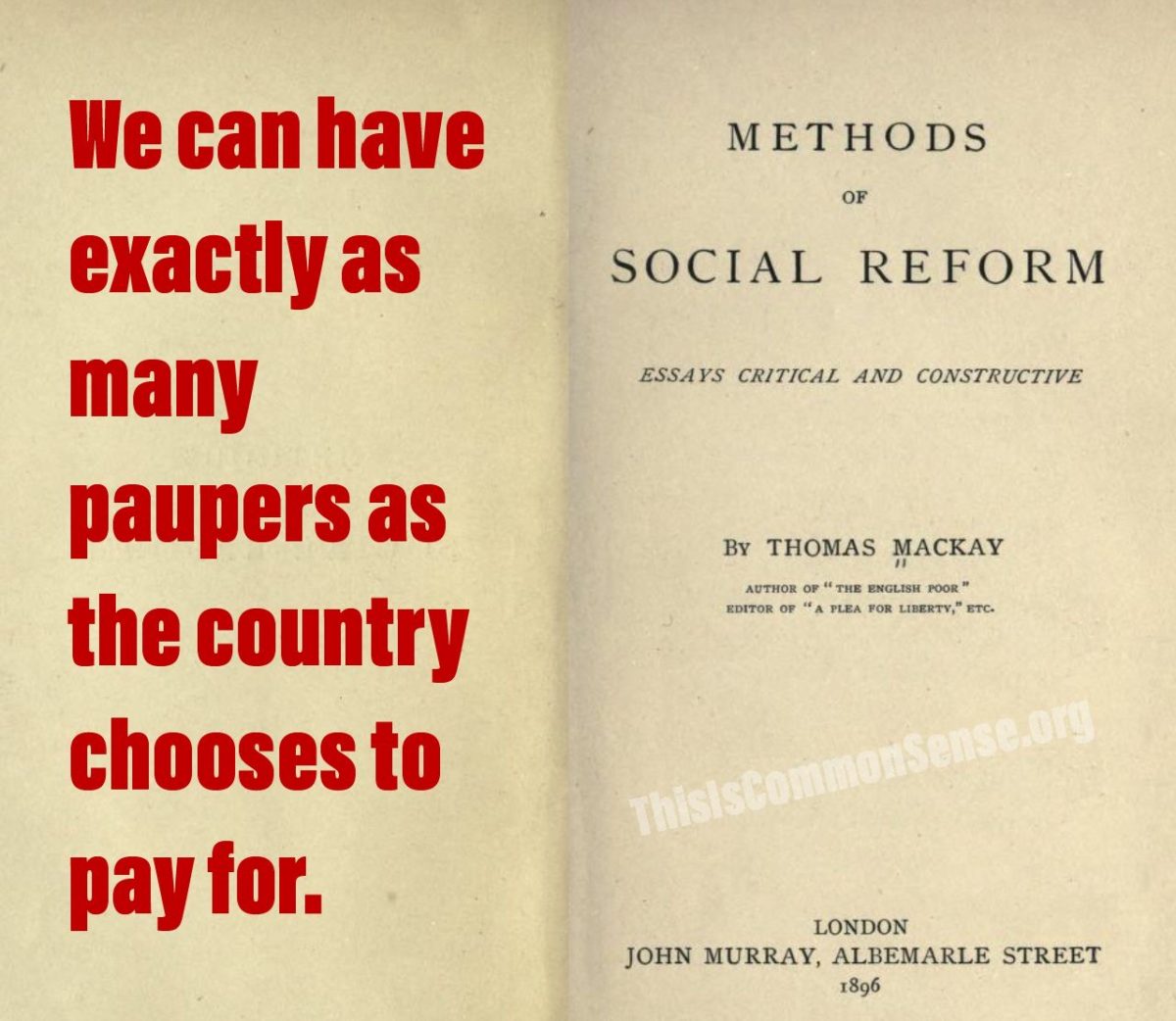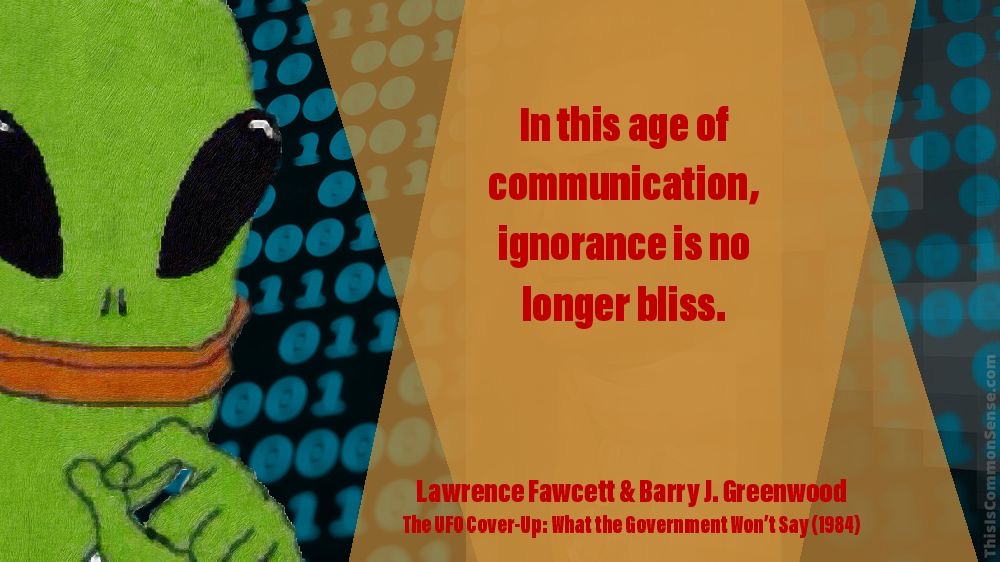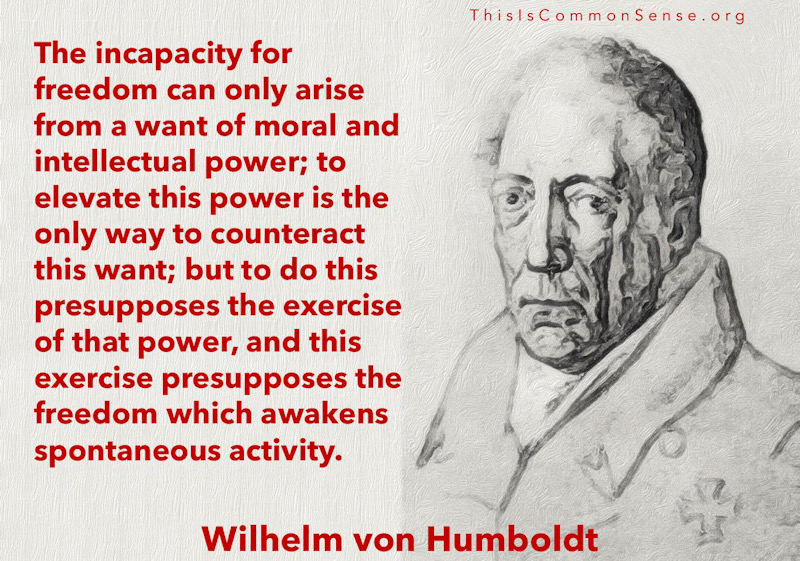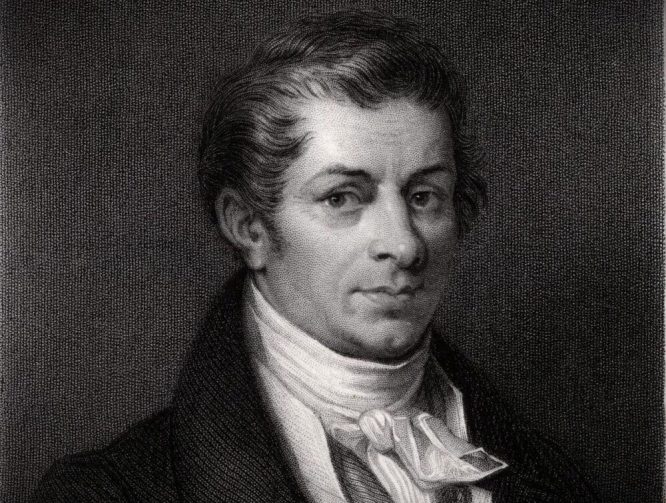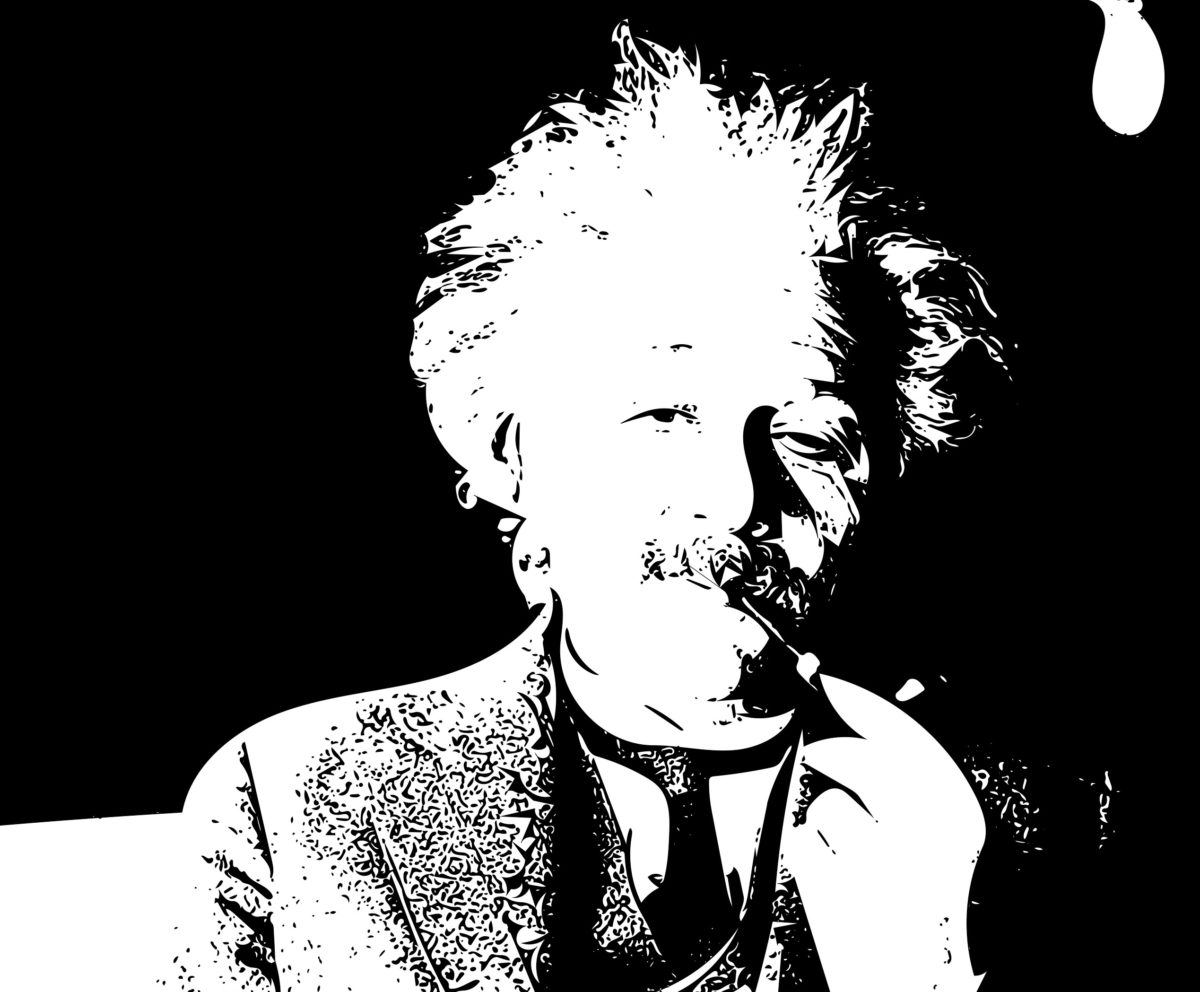One of the chief objects of medicine is to save us from the natural consequences of our vices and follies. The moment it becomes moral it becomes quackery. A scientific physician should have no opinions about the ethical standards and deserts of his patient.
H. L. Mencken, Minority Report: H. L. Mencken’s Notebooks (1956), p. 7.
Categories
H. L. Mencken
